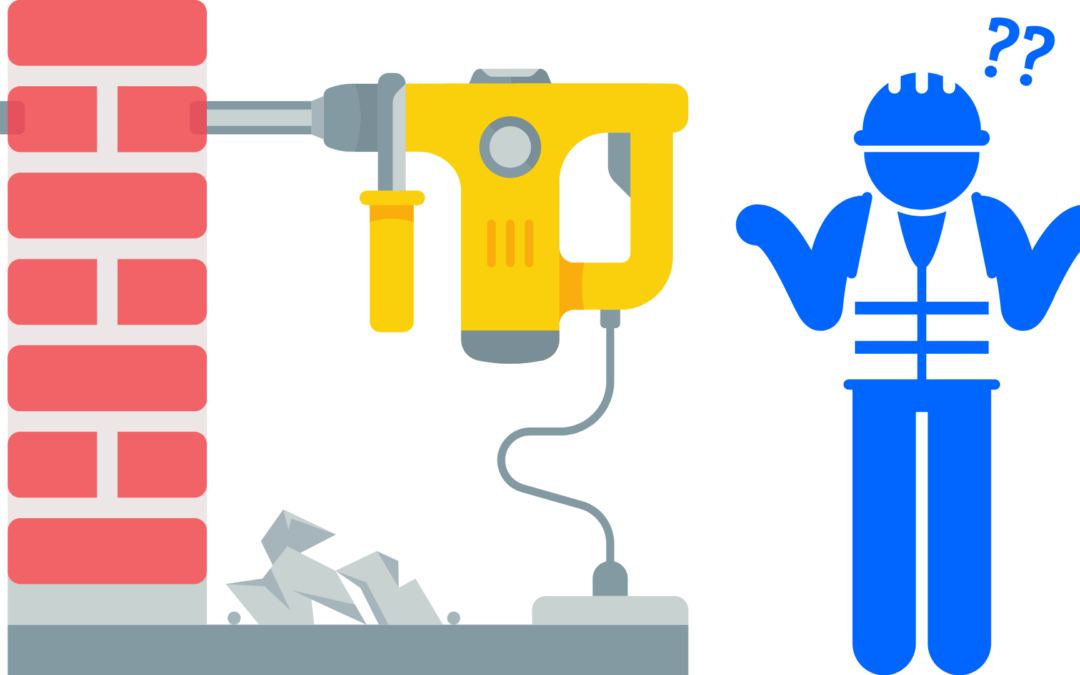When it comes to tackling tough materials like concrete, brick, or stone, a hammer drill is an essential tool for the job. Whether you’re a seasoned contractor, a DIY enthusiast, or a homeowner looking to complete specific projects, choosing the right hammer drill can make your work faster, safer, and more efficient.
This guide will walk you through the key features to consider, common use cases, and tips for selecting the best hammer drill for your needs.
What Is a Hammer Drill and Why Do You Need One?
A hammer drill combines rotary drilling with a percussive hammering action, enabling it to penetrate hard materials with ease. The hammering motion breaks up the material, while the rotary action drills into it, making it ideal for masonry, concrete, and other heavy-duty applications.
Common Uses for Hammer Drills:
- Drilling anchor holes in concrete walls or floors.
- Installing wall-mounted fixtures on brick or stone.
- Creating access points for plumbing or electrical wiring in tough surfaces.
- Mixing thick materials like mortar or concrete (with appropriate attachments).
Key Features to Consider When Choosing a Hammer Drill
Not all hammer drills are created equal. Here are the most important features to evaluate:
1. Power Source
Hammer drills come in two primary types:
- Corded Hammer Drills:
- Ideal for heavy-duty work requiring consistent power.
- Typically more powerful than cordless models.
- Best suited for stationary or long-duration tasks.
- Cordless Hammer Drills:
- Portable and convenient for outdoor or remote jobs.
- Powered by lithium-ion batteries, which vary in capacity.
- Look for models with 18V or 20V batteries for optimal performance.
2. Motor Power
- For corded models, look for motors rated between 7 and 10 amps.
- For cordless models, voltage determines power; 18V to 20V is common for heavy-duty tasks.
3. Modes of Operation
- Drill-Only Mode: For softer materials like wood or metal.
- Hammer Drill Mode: For masonry, concrete, or stone.
- Chisel Mode (Rotary Hammer Drills): If you need demolition capabilities.
4. Chuck Type
- Keyless Chuck: Convenient for quick bit changes.
- SDS Chuck: Found on rotary hammer drills, designed for secure bit retention during heavy-duty applications.
5. Speed and Torque
- Variable Speed Settings: Allows you to adjust speed for precision and control.
- High Torque: Essential for drilling into dense materials.
6. Blows Per Minute (BPM)
- Higher BPM indicates faster hammering action, making it easier to penetrate hard surfaces.
7. Ergonomics and Comfort
- Lightweight models reduce fatigue during extended use.
- Look for features like rubberized grips, side handles, and anti-vibration technology for added comfort.
8. Accessories and Features
- Depth Stop Rods: Ensure consistent hole depth.
- LED Work Lights: Illuminate your workspace in low-light conditions.
- Dust Collection Ports: Minimize cleanup and improve visibility while drilling.
Use Cases and Matching the Drill to Your Project
1. Home Improvement Projects:
- If you’re a homeowner or DIY enthusiast, a cordless hammer drill with moderate power (18V or 20V) is ideal for projects like hanging shelves, mounting fixtures, or minor masonry work.
- Example: Drilling anchor holes into brick for curtain rods or outdoor lights.
2. Masonry Work:
- For professional masons or heavy-duty masonry tasks, a corded hammer drill with 7–10 amps and a durable chuck is essential.
- Example: Installing anchors in concrete walls for structural support.
3. Trades and Construction:
- Contractors working on job sites will benefit from a high-powered rotary hammer drill with SDS bits for handling dense materials.
- Example: Drilling through reinforced concrete slabs or creating access points for wiring and plumbing.
4. Occasional DIY or Light Repairs:
- For occasional tasks, a lightweight, budget-friendly hammer drill is sufficient.
- Example: Drilling small holes in concrete for hanging planters or securing furniture.
Tips for Choosing the Best Hammer Drill
1. Assess Your Needs:
- Consider the types of materials and projects you’ll be working on.
- Choose a model that aligns with your typical workload (light DIY versus heavy construction).
2. Don’t Overlook Build Quality:
- Invest in a durable, reliable brand like DeWalt, Bosch, or Makita to ensure longevity.
3. Prioritize Comfort and Safety:
- Test the grip and weight of the drill if possible.
- Look for models with anti-vibration features to reduce fatigue.
4. Evaluate Battery Life for Cordless Models:
- For cordless drills, consider buying extra batteries to avoid downtime during long projects.
5. Stay Within Budget Without Sacrificing Quality:
- Entry-level models can cost $50–$100, while high-performance rotary hammer drills can exceed $300.
Top Hammer Drill Recommendations
Here are some examples of hammer drills to consider for different needs:
- DIY Enthusiasts:
- DeWalt 20V MAX Cordless Hammer Drill – Lightweight, portable, and powerful for home projects.
- Heavy-Duty Work:
- Bosch 11255VSR Bulldog Xtreme – A corded rotary hammer drill ideal for masonry and concrete tasks.
- Budget-Friendly Option:
- BLACK+DECKER 6.5-Amp Hammer Drill – Affordable and sufficient for occasional use.
For more detailed reviews, visit our Hammer Drill Spotlight Page.
Maintenance Tips for Hammer Drills
- Clean Regularly: Remove dust and debris from vents, chuck, and motor housing after use.
- Check Bits: Use high-quality, sharp drill bits to maintain efficiency and reduce wear on the motor.
- Lubricate Components: Apply a light lubricant to the chuck and moving parts for smoother operation.
- Store Safely: Keep your drill in a dry, secure location to prevent damage.
Conclusion
Choosing the right hammer drill is an investment in your projects and productivity. By understanding your specific needs and the features that matter most, you can select a tool that will serve you well for years to come.
Whether you’re a weekend DIYer, a skilled tradesperson, or tackling a major home improvement project, the right hammer drill can make all the difference. Explore our Hammer Drill Spotlight Page for detailed reviews and recommendations to help you make an informed decision.
